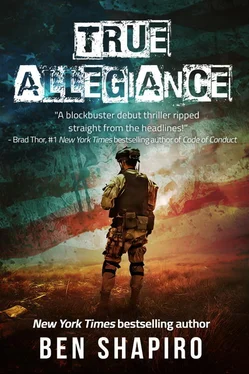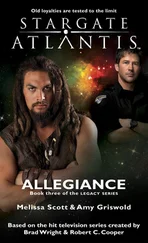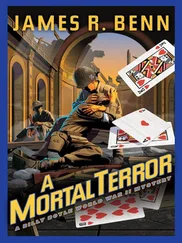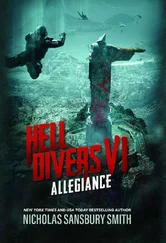“Your time is over, General,” he concluded. “Now get out of my sight.”
Brett looked back at him as he headed toward the door. “I understand our enemies better now, Mr. President. You’re not a very credible bluffer.” He turned his back and slammed the door behind him.
Prescott woke from his nap an hour later to Tommy Bradley’s face. Written across it was panic.
“Jesus,” he grumbled, “what now?”
“Mr. President,” said Bradley, “I think you’d better come see this.”
When he stumbled his way into the living room, the footage from the television made him stop in his tracks. “REVEREND JIM CRAWFORD ASSASSINATED,” the chyron read. “WHITE SUPREMACIST GROUP WITH TIES TO ‘TERRORIST MAMA’ IMPLICATED.” Above the chyron ran the footage of continuing riots in the streets of Detroit. Then the anchors cut to some strong-jawed young black man named Levon Williams. They billed him as “Protest Leader.”
“I call for the people of my city to join me. It is time to rise up and claim our freedom,” he said.
The CNN anchor looked worried. “Levon Williams, the man you just saw there, was a close associate of the Reverend Jim Crawford. Jim Crawford, dead at fifty-four years of age, gunned down, we are told, in the bathroom of his hotel room. Crawford was in Detroit to calm tensions after the killing of eight-year-old Kendrick Malone.
“Law enforcement sources tell us that Soledad Ramirez, the fugitive wanted in connection with the bombing of government offices in Sacramento, California, earlier this year, was spotted during the chaos in the aftermath of the Crawford assassination, entering the police station. Sergeant Ricky O’Sullivan, who had just been cleared in Malone’s killing, is missing as well.”
The footage flashed to riots in Cleveland, Washington, DC, Los Angeles.
“The cities are burning,” said the anchor. “The death of Big Jim Crawford has opened wounds Americans hoped had healed long ago. We still await comment from the president of the United States on this.”
The moment had to end sometime, Prescott knew. But for it to end this quickly—for things to fall apart this quickly—felt like a blow to the stomach. He plopped back heavily onto the sofa. “Well, Tommy, what do you suggest?”
Bradley scratched his head. “Seems to me you’ve got two choices. One is to allocate resources from New York to these various cities. We’ve got governors beginning to call, asking for help from the feds; they want some of the Guard members we’ve brought here back in their states.”
President Prescott shook his head. “No. Bad imagery. You remember Ferguson. You put guns on the street, you might as well tell the media you’re a racist looking for street warfare. Next option?”
“We parlay.”
“With whom?”
Bradley pointed at the TV, where CNN flashed footage of Levon again. “Him.”
“What do we know about him?”
“Well educated. Popular. Some criminal connections. FBI has had an eye on him for a while. They say he runs a shakedown racket.”
Prescott guffawed. “So did Big Jim, and that didn’t stop anybody from sainting the bastard. Can you talk to him?”
“Will do.”
Levon had set up his headquarters inside the now-abandoned detention center. Overnight, Levon had become de facto mayor of the city.
Without the force of the National Guard to back them, the local police had fallen into a standoff position with the protesters, but Mayor Burns refused to authorize action to push Levon and his men out of the building, believing that such action would be too provocative. Levon had quickly set up a system of runners among various positions in the city—he knew enough about surveillance practices that he didn’t trust electronic communications.
The city had gone silent and cold; many residents wanted to flee, but feared that they couldn’t get out of the city limits without being brutalized by roving bands of street gangs. The gangs had even set up roadblocks on the major traffic arteries. They were confiscating property from those who tried to leave, telling them that everyone had to be searched in order to ensure that there was no connection to the white supremacist group that had murdered Jim Crawford.
Levon didn’t know the extent of his power yet, of course. Mayor Burns said that eventually things would be put back under control; he’d put in a request to the governor, and the governor had put in a request to the feds. But soon enough, things would calm down. In the meantime, he urged patience and restraint.
Levon, on the other hand, called for action. He humored every reporter, gave a quote to every journalist. He trotted out Kendrick Malone’s mother as often as possible, making his own case for authority bulletproof on the back of her grief. Levon’s long-term plan, he told the media, was “justice.” He didn’t define it, and they didn’t have to know that he meant to run for office on the back of his organized resistance. It had worked for Marion Barry, Big Jim had said. It would work for Levon Williams.
All that changed at 8:34 a.m.
The phone rang on Levon’s desk. When he picked it up, a female voice answered. “Mr. Williams?”
“Yes?”
“Please hold for the chief of staff to the president of the United States.”
This has got to be some sort of fucking prank, or some sort of media hit , Levon thought. But when he heard the voice on the other end of the line, he knew it was neither.
“Mr. Williams? This is Tommy Bradley.”
Levon leaned back in his chair, kicked his feet up onto the desk. “Mr. Bradley, it’s good to speak with you. I voted for your boss, you know.”
“Why, thanks, Levon.”
In New York, Bradley paced the hotel room nervously. “Levon, I just want to express the president’s true admiration for your movement. We want to thank you for trying to tamp down the violence, to keep things under control under very difficult circumstances.”
Levon grinned ear to ear. He’d heard men beg him before. To have the surrogate for the most powerful man on earth preparing to do it was something entirely different. “Mr. Bradley, I really appreciate that sentiment. What can I do for you?”
“Well, Levon, it’s like this. We couldn’t admire your stand on social justice more, particularly in the wake of this tragedy with Jim Crawford. I know you and he were close friends. The president wants to ask you for a favor. Please keep your followers from committing acts of violence.”
“Well,” said Levon, “I’m doing the best I can. I can’t hold everybody back. It’s a passionate time…”
“Yes, yes, of course we understand that. But if you could do your best.”
“Listen… In order for me to keep my credibility with my people, they’re going to need the president to say something in solidarity. They’re going to need to know that he endorses our movement for justice. They turned out for him at the polls, and they know he’s with them, but they need some sort of sign. They’re going to need him to pledge to stop police brutality against our people, and they’re going to need his promise to reopen the Ricky O’Sullivan case.”
Bradley coughed. “We can do most of that, Levon. But that last one, that’s out of our hands. We don’t control the DOJ.”
“Well then we might just have a conflict here. I’ve got a lot of very angry people, and they’re very angry for a reason.”
There was a silence on the other end of the line. Levon heard some murmuring—he thought he heard Prescott’s voice. Then Bradley was back. “Levon, as it so happens, I do have another idea that might serve both our interests. You’re going to have to trust us.”
“For how long?”
“Not too long. You’ll see something on the news.”
Читать дальше












